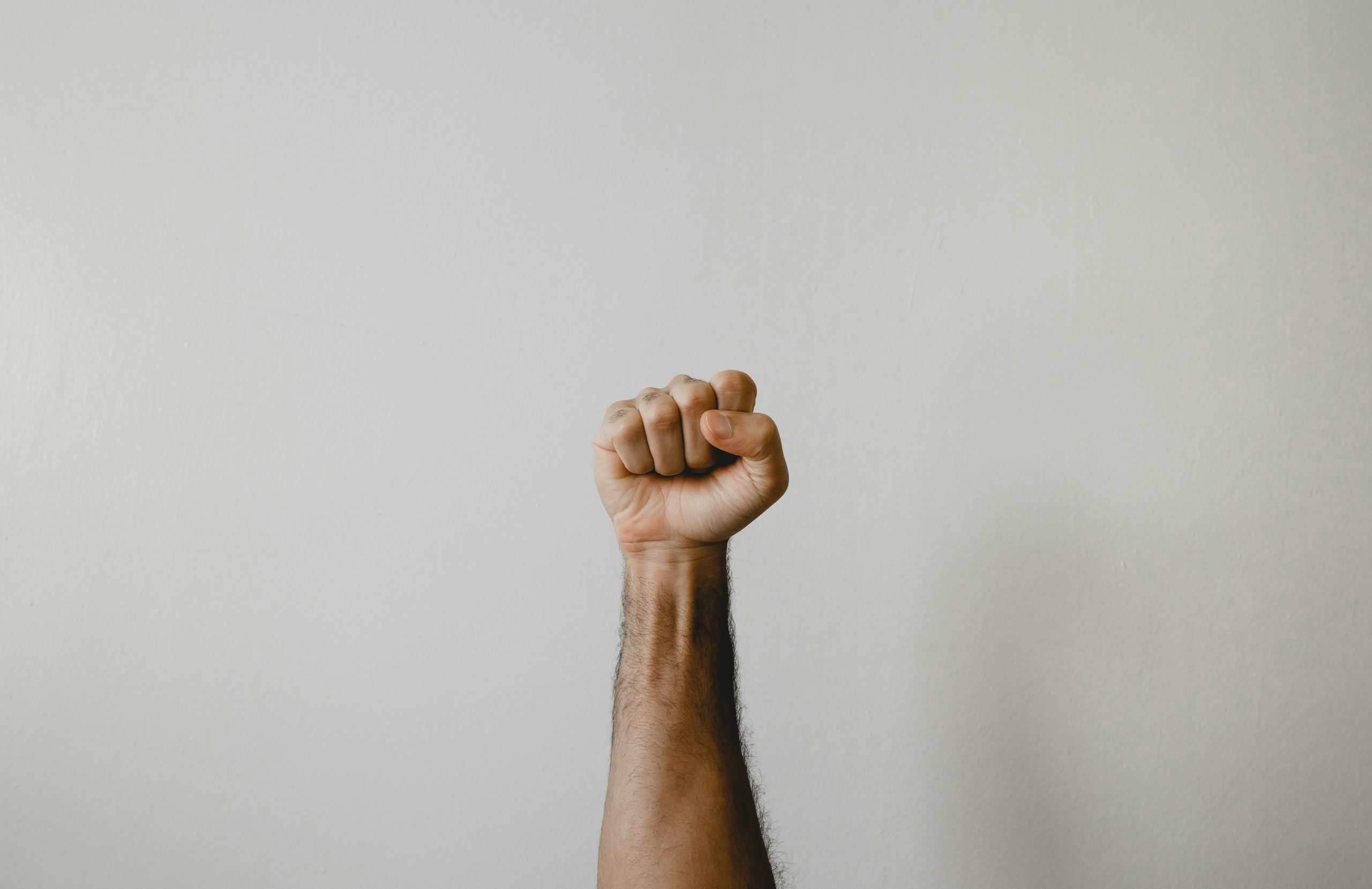Books & Culture
Being an Honorary White Person Doesn’t Make Us More Powerful
“Beef” reminds us that choosing proximity to whiteness often means doing harm to ourselves and others

In the years since the summer of Crazy Rich Asians, Asian American representation in mainstream entertainment has experienced a triumphant swell, producing positive, sympathetic portrayals where there were once only unflattering, stereotype-driven clichés. So long, Long Duk Dong! Hello, Shang-Chi and the Eight Abs!
Now, during Asian American Native Hawaiian/Pacific Islander (AANHPI) Heritage Month each May, we are spoiled for choices in works that celebrate and uplift our strength and beauty. This surfeit of wholesomeness can even feel a little monotonous at times, but who’s complaining?
Then along came Netflix’s Beef, an Asian American show with a full Asian American cast and Asian American creatives at the helm that eschewed of the familiar beats of intergenerational weepies and straightforward racist conflicts in favor of a darkly satirical dramedy about the inescapable cycle of misplaced hopes, bad decisions, and misunderstood misery. Beef’s creator says the series is not about race, and while this is technically true, there is no question that distinctly American white supremacist racial dynamics are a constant specter tormenting main characters Danny (Steven Yeun) and Amy (Ali Wong) as they blame each other for everything that goes wrong in their own lives.
There is no question that distinctly American white supremacist racial dynamics are a constant specter.
While many works led by people of color portray white supremacy in its more simplistic and hateful form, in Beef it is much more embedded in the characters’ mindsets, driving logical fallacies and foolishness in ways that hold an uncomfortable mirror to viewers, showing us that sometimes, we too, let white supremacy get into our heads.
Throughout the series, Amy frantically maneuvers to sell her plant business, Kōyōhaus, to Jordan Forster (Maria Bello), CEO of a big-box chain and casually obnoxious Asia-phile. Through Jordan and Amy’s various interactions, it is apparent that Jordan sees Amy as an Asian plaything to be acquired alongside her business—from the constant stream of racially-inflected quips, to overly-familiar touching. But on Amy’s part, she seems to have constructed both her business and personal brand for maximum appeal to the kind of white person that carries an orientalist appetite.
The brand identity of Kōyōhaus seems wholly constructed to represent Amy’s determination to gain white acceptance, with its Japanese-ish name (despite Amy being of Chinese and Vietnamese heritage) to communicate craft and a Germanic “haus” tacked on for added European premiumness. It doesn’t escape me that Japanese culture has long been fetishized in the West as being the upper echelon of Asian refinement. Kōyōhaus is Asianesque without cultural substance, engineered to let consumers feel cultured simply through a purchase, not unlike Jordan herself, who is willing to pay $150,000 to buy a chair from Amy called “tamago” (Japanese for “egg”) without even bothering to learn how to pronounce it correctly.
Amy makes bank from successfully courting white desire.
Amy herself is packaged in a similar fashion, clad in neutral, flowy outfits. She connotes zen, a gracious, solicitous smile pasted on her face for anyone she needs to approach with her model minority charms. It is entirely possible that Amy doesn’t realize her zen posturing is catnip for Jordan’s racist fetish because when she commiserates with her Japanese American husband about the acquisition deal, she never once brings up Jordan’s creepy racism. Acknowledging Jordan’s racism out loud would mean acknowledging the existence of systemic inequalities that work against—and in—her favor as an East Asian, and how she doesn’t have as much control regarding how her life turns out as she needs to believe.
Many viewers of color would be quick to recognize—with resignation—the need to play to stereotypes in order to usher through a positive transaction, or maintain a pleasant atmosphere in mixed company. So often, we have to put survival above dignity; we swim upstream even if the waters are unclean, tainting us the longer we linger. The Kōyōhaus storyline is a pitch-perfect critique of what happens when a person of color internalizes the necessity for self-tokenization without acknowledging the toxicity and wrongness of the whole process. In selling Kōyōhaus, Amy makes bank from successfully courting white desire, attaining perks of white adjacency in the process. Yet she is miserable, humiliated at every turn and unable to express it for fear of disrupting her carefully maintained Asianesque composure at the expense of her business interests.
In a series full of hard lessons, I recognized this one to be about the limits of finding true happiness through white adjacency. Ironic given what has transpired in the real world concerning the show, its producers, and one of its stars.
A week after the release of the show, investigative reporter Aura Bogado shared a video clip recorded in 2014 from Beef supporting actor David Choe’s podcast DVDASA in which he relates, in disturbing detail, an act of sexual assault he committed against a Black female massage therapist, and referred to himself as a “successful rapist”.
Previously, in both 2014, and later in 2017, Choe was met with backlash, and responded with statements that identified the story as fabricated for shock value, and emphasized that no real person was harmed by him. During the week after the clip resurfaced, Beef creators Lee Sung Jin, executive producers Ali Wong, and Steven Yeun, as well as Netflix and production company A24 remained silent while David Choe filed DMCA complaints to have the clip taken down from Bogado and cultural strategist Meecham Whitson Meriweather’s Twitter accounts. These actions drew a surge of criticism led by Black and Asian women, and grew to a degree that has come to overshadow the glowing critical response the series initially garnered.
Bringing up someone’s mental illness to explain their bigotry is a time-honored public relations tactic.
On Friday, April 21st, the Beef creators finally broke their silence, and in a short statement, condemned Choe’s original podcast as “undeniably hurtful and extremely disturbing” but also maintained that they believe Choe has “put in the work to get the mental health support he needed over the [past] decade to better himself and learn from his mistakes.”
I was among those who was disappointed by this response, which dismisses Choe’s glorification of rape and his blatant anti-Blackness and misogyny (misogynoir) as a mental health issue that was dealt with through treatment. Bringing up someone’s mental illness to explain their bigotry is a time-honored public relations tactic, despite experts pointing out repeatedly that mental health has no bearing on individual beliefs, and this rhetoric stigmatizes people with mental health issues as dangerous when they are far more likely to be victims than perpetrators.
In pathologizing Choe’s words and emphasizing their lack of veracity (and presumed lack of a “real victim”), Beef’s creators deny the harm caused by his so-called jokes, and also fails to acknowledge the potent societal forces that compelled him to publicly share such a vile tale in the first place—a bid to build his hypermasculine public image.
You see, the active participation of Asian Americans in anti-Blackness has everything to do with attaining status and success in the entertainment industry, be it through perpetuating negative stereotypes about Black women’s sexuality as Choe did, or appropriating Black vernacular as actor Awkwafina has done, or engaging in colorism by casting light-skinned performers in a movie about an Afro-Latino neighborhood as director Jon Chu did, to name a few recent examples.
Aside from mining Black culture for coolness, Asians Americans upholding anti-Blackness also indicates their willingness to buy into the systemic inequality this country is built on, and to grow within it rather than challenge and dismantle it in favor of a system that’s more equitable for everyone. This validates a “model minority” existence, forgoing solidarity with other POCs in favor of the perks of white adjacency. To do so reveals a key misunderstanding of white supremacy itself.
Watching Beef, the series’ creators seem very much aware of this toxic dynamic, and pulls no punches in taking sharp jabs at Asian Americans who seek whiteness, not only through Amy’s chronic unhappiness of keeping up her “model minority” veneer, but also the visceral embarrassment of Danny’s secret yearning for white women when he masturbates to AMWF (Asian Male White Female) porn despite insisting to his brother that he prefers Asian women. Beef is clear about the humiliating hollowness of white adjacency for Asian Americans, and how attaining it comes at the expense of the freedom of being oneself. After all, it’s white supremacy, only white people are the real winners within it. Being an honorary white person is not a real status with any guarantee for power or safety.
You wouldn’t know that the people behind such a powerful, progressive message are the same people who have handled the Choe incident thus far. As I said, ironic.
It almost feels as if Beef is a show within a show, so darkly comical are Choe, Lee, Wong, and Yeun’s doomed bad decisions as they desperately try to protect Beef’s mainstream success as a vehicle for representation while ignoring their critics, many of whom belong to the groups they seek to represent.
They may very well consider the good-faith criticism they have received as a form of sabotage
There are those who believe that mainstream crossover success of celebrities of color among Hollywood circles eventually trickles down to better the lives of the rest of us. However, that doesn’t account for the collateral damage that comes with the trickle down. In the case of Choe’s rape stories, regardless of their veracity, downplaying their harm—specifically toward Black women—tells us that shielding a member of the Beef team from accountability is more important. They may very well consider the good-faith criticism they have received as a form of sabotage, muddying their media campaign, killing the positive buzz they had going. Some who believe in the power of representation even plead for the public to continue supporting Beef and not let their disdain for Choe ruin the show’s chances at prestige.
I say, whatever damage the series sustains, they have it coming.
In his recent comedy special, Chris Rock said that his parents taught him an important lesson growing up: “Don’t fight in front of white people.” It seems that Beef’s creators buy into the same stale respectability politics, this belief that publicly acknowledging your mistakes weakens your standing and diminishes your power.
But what truly diminishes the power of Beef is not the critics that refuse to let Choe’s ugly past go, but the hypocrisy of its creators, who cautioned us to the futility of chasing white adjacency for the sake of our own advancement.








